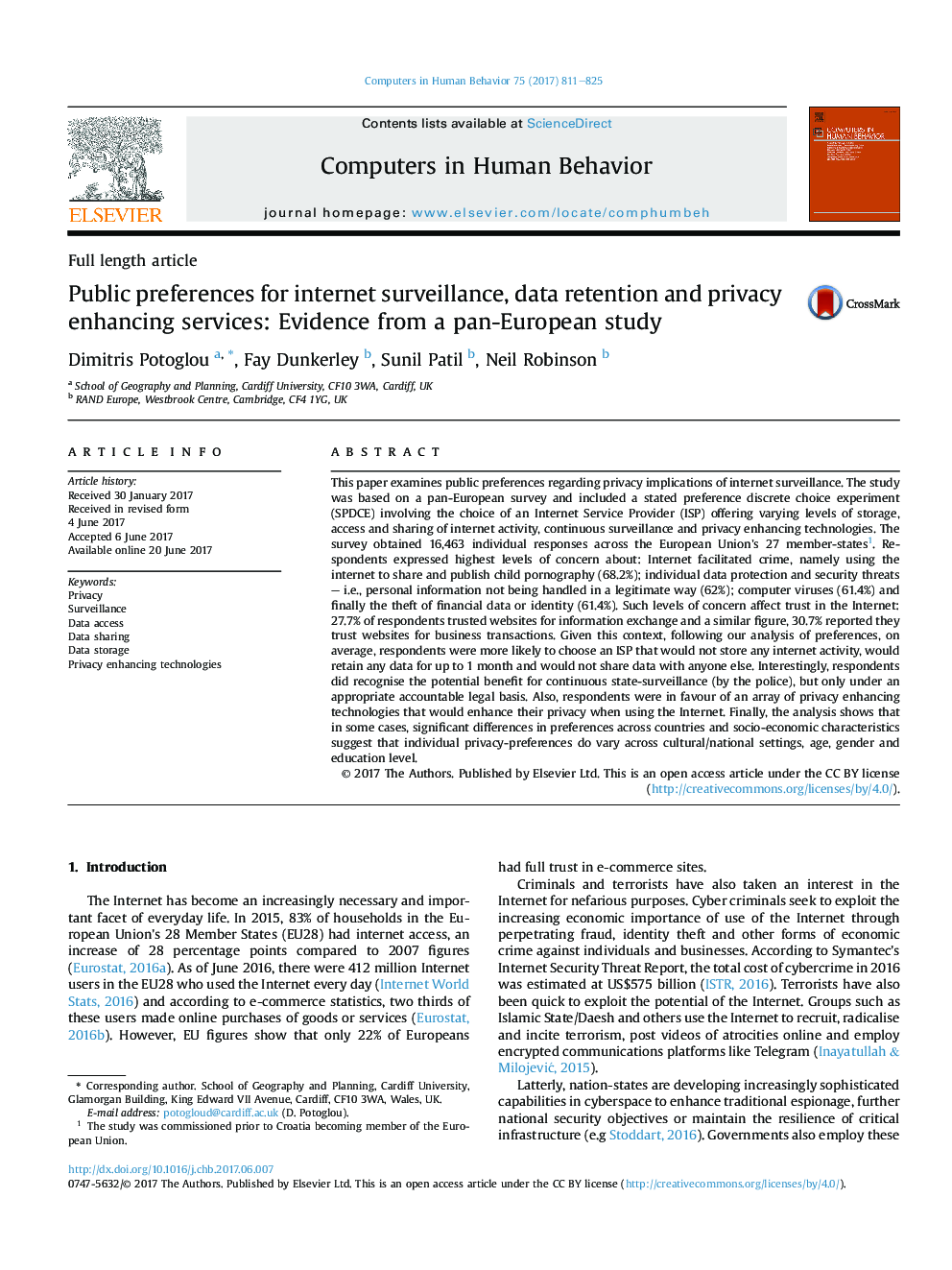| کد مقاله | کد نشریه | سال انتشار | مقاله انگلیسی | نسخه تمام متن |
|---|---|---|---|---|
| 4937547 | 1434616 | 2017 | 15 صفحه PDF | دانلود رایگان |
- Examination of citizens' preferences under different privacy conditions when using the Internet.
- Different dimensions in relation to privacy preferences were examined under the privacy calculus.
- Investigations examined the potential demand for privacy enhancing tools.
- Heterogeneity of preferences for privacy across age, gender, income and countries.
This paper examines public preferences regarding privacy implications of internet surveillance. The study was based on a pan-European survey and included a stated preference discrete choice experiment (SPDCE) involving the choice of an Internet Service Provider (ISP) offering varying levels of storage, access and sharing of internet activity, continuous surveillance and privacy enhancing technologies. The survey obtained 16,463 individual responses across the European Union's 27 member-states1. Respondents expressed highest levels of concern about: Internet facilitated crime, namely using the internet to share and publish child pornography (68.2%); individual data protection and security threats - i.e., personal information not being handled in a legitimate way (62%); computer viruses (61.4%) and finally the theft of financial data or identity (61.4%). Such levels of concern affect trust in the Internet: 27.7% of respondents trusted websites for information exchange and a similar figure, 30.7% reported they trust websites for business transactions. Given this context, following our analysis of preferences, on average, respondents were more likely to choose an ISP that would not store any internet activity, would retain any data for up to 1 month and would not share data with anyone else. Interestingly, respondents did recognise the potential benefit for continuous state-surveillance (by the police), but only under an appropriate accountable legal basis. Also, respondents were in favour of an array of privacy enhancing technologies that would enhance their privacy when using the Internet. Finally, the analysis shows that in some cases, significant differences in preferences across countries and socio-economic characteristics suggest that individual privacy-preferences do vary across cultural/national settings, age, gender and education level.
Journal: Computers in Human Behavior - Volume 75, October 2017, Pages 811-825
